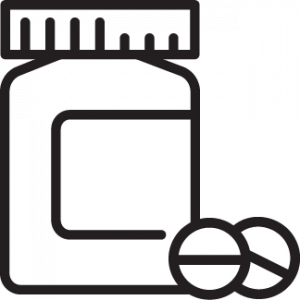Sedatives and Sleeping Pills
Sedatives or sleeping pills are medications which must be prescribed by a doctor. Using prescription medications if they were not prescribed for you by a doctor or if you do not use them according to the doctor’s instructions constitutes misuse. Most sedatives belong to a group of drugs called Benzodiazepines. Benzodiazepines are minor tranquilizers (sedatives) usually prescribed to treat anxiety and to help with sleep.
Other Names
Tranquilizers (sedatives) are usually known by their chemical (generic) name or their brand names. Different brand names may just be exactly the same drug made by different companies so it is important to look at the generic name.
Benzos, tranx, pills, sleepers, downers
What they look like
Sedatives (tranquilizers) come in a range of colours and designs, in the form of tablets or capsules. They are generally stamped with the manufacturers name and the milligram quantity.
Immediate effects of Sedative Sleeping Pills
- Depression
- Feelings of euphoria
- Headache
- Dry mouth
- Slurred speech
- Dizziness, impaired coordination
- Drowsiness, sleepiness
- Memory loss
- Loss of appetite, nausea, vomiting
Long term effects of Sedative Sleeping Pills
Some of the long-term effects of benzodiazepines are
- Confusion and difficulty thinking clearly
- Lack of motivation
- Fatigue
- Difficulty sleeping and disturbing dreams
- Anxiety
- Irritability, paranoia and aggression
- Personality changes and changes in emotional response
- Dependence
Preventing and Reducing Harm
The effects of mixing benzodiazepines with alcohol, other prescription or over the counter medications, and/or other illicit drugs are often unpredictable. In particular,
- Mixing benzodiazepines with alcohol, opioids or other depressant drugs increases the depressant effects and can lead to breathing difficulties, increased risk of overdose and death.
Injecting
Injecting prescription medications may cause:
- Vein damage and scarring
- Deep vein thrombosis and clots causing loss of limbs, damage to organs, stroke and possibly death
- Infection, including tetanus, hepatitis B, hepatitis C, and HIV
Sharing equipment such as needles and syringes greatly increases the risk of contracting blood borne viruses such as Hepatitis B, Hepatitis C and HIV.
It is safest not to inject drugs. However, if you choose to inject you should always use new clean equipment. The National Alcohol and Drug Hotline 1800 250 015 can provide information on where to obtain clean needles and syringes in your state or territory.
Legal considerations of Sedative Sleeping Pills
It is illegal to use or obtain prescription medicines that were not prescribed for you or to supply your prescription medicines to someone else.
Adapted from Drug Facts, Alcohol and Drug Foundation, 2019.



